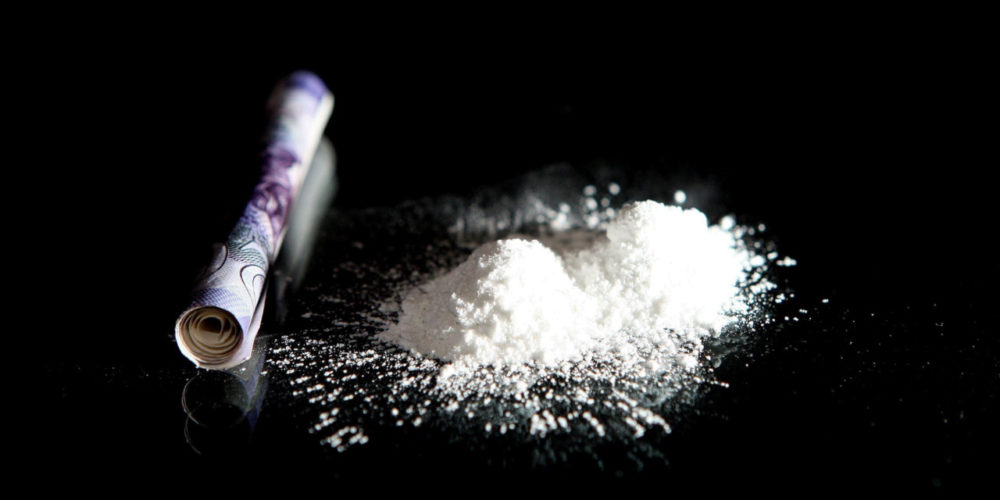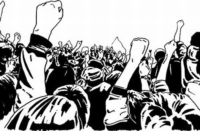It is often claimed that the “War on Drugs” has failed, and that in response the use of illegal drugs should be permitted.
There are several serious issues with this thesis, the first being the question of what evidence exists that there has been a “war on drugs.” In fact the evidence suggests the opposite: that what has existed since the 1960s has been a war of drugs, used against the working class, in the service of monopoly capitalism. For instance, after the NATO-led invasion of Afghanistan—the world’s leading producer of opium—drug production increased 16-fold.
Another example is Colombia, after the United States launched its “Plan Colombia,” ostensibly to target cocaine production but in reality targeting the FARC. Given the forced displacement of Colombian peasants and the neo-liberal reforms, many of those in poor rural areas were forced to engage in coca production as the easiest way to survive, which meant that drug production increased. Outside the areas controlled by leftist guerrillas, the conditions of these workers is abysmal, with many working under armed guard by right-wing paramilitaries, who depend on drug income for their campaigns of assassination against trade unionists and social leaders throughout Colombia.
The use of drugs is not just a foreign-policy weapon of the United States but also a domestic one. The United States consumes half the drugs produced on the planet, with more than two-thirds of its prisoners serving sentences for drug-related offences, the majority being Black Americans.
As well as being a source of immense profit for the prison-industrial complex, it is also a tactic for keeping the most subversive elements pacified. As part of the “COINTELPRO” policies for attacking the Black Panthers, drugs were flooded into black communities, with the police turning a blind eye and leaving those communities to become infested with drugs as a result of deliberate under-development and a lack of sustainable employment.
During the 1980s the US war against the Sandinistas in Nicaragua allowed the CIA to facilitate the Contras in trafficking drugs, in the full knowledge that their destination would be black working-class communities in the United States.
The demand for the legalisation of drugs is a blanket slogan that fails to properly understand the complexities of the issue, and can even be used for outright reactionary, neo-liberal results, regardless of the intentions of those calling for it.
Drug-trafficking is a major capitalist enterprise, the second-largest in the world, even ahead of oil. Were narcotics to be made legal, the massive international monopolies would in fact find it to be a formality. Given their immense economic power, it follows that they also have immense political power. Throughout Latin America and Asia, drug barons find that the law means little to them, with some even having success in taking the next step up from bribing law-makers to becoming law-makers themselves, as in the case of Pablo Escobar. Legalisation would only give them the means to become as corrupt as their allies in the legal pharmaceutical industry.
Ultimately, legalisation would inevitably lead to an increase in drug-taking and the normalising of drugs. Consumption would overwhelmingly be centred on the imperialist core, with an extremely exploitative dependence for those in the Global South who are forced to produce them, instead of more sustainable and ethical projects. After cannabis was legalised in some parts of the United States, arrests relating to drug crime actually increased, tripling in Washington and increasing by 26 per cent in Colorado.
As is always the case under capitalism, someone is making a profit. Altria, the parent company of the tobacco giant Philip Morris, has invested more than $2 billion in the fledgling cannabis industry. Their paid promotion of studies extolling the virtues of cannabis has a close resemblance to the campaigns those companies carried out at the turn of the century to promote cigarettes as being harmless.
The use of drugs, including alcohol, only pacifies resistance to capitalism. It is a barrier to working-class struggle and the strengthening of workers’ power. It is a victory for individualism in its worst form. Rather than relying on drugs to allow our people to scrape a living under capitalism, revolutionaries should instead be working to smash the system and in so doing break the source of people’s dependence on drugs.
Socialist Cuba is a concrete example of a drugs policy that works in the people’s interests. All drugs are prohibited, including cannabis, and there are severe penalties for drug-traffickers. Those who develop alcohol or drug problems are not given harsh prison sentences but are contacted by representatives of their community-based Committee for the Defence of the Revolution, where they are informed about the harm their drug use has caused and given educational and medical assistance, with information disseminated widely through the media and the education system.
This is a far cry from the sanitised approach to drugs in Ireland, where television shows such as “Love/Hate” portray drug-dealers as handsome figures who struggle with family and everyday issues involved in running a business where the customer seemingly enjoys being an addict, with no real treatment of the actual socio-economic reasons that lead people to take drugs.
It’s almost like saying that the working-class struggle in Dublin during the 1990s against drug-pushers, and the state to an extent, never happened. Even information schemes here do a poor job of presenting the case against drugs, instead only leading to curiosity about drug use, especially among rebellious young people.
Then again, maybe that’s the point?






